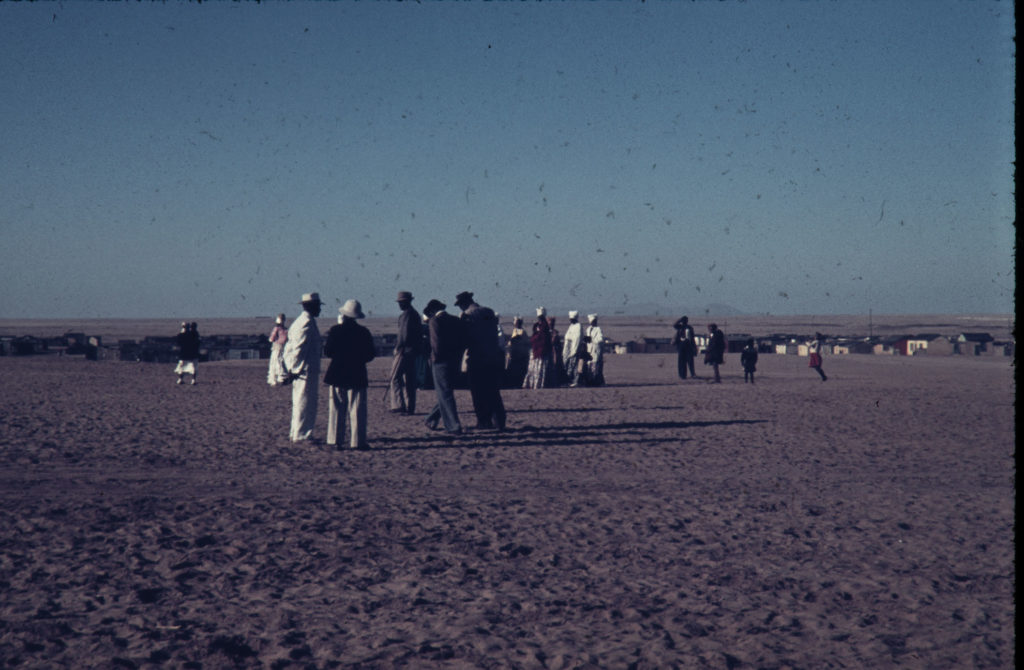Research & Use Archive
Research
There are several ways of searching our archive holdings.
The archive catalogue provides a comprehensive overview of BAB’s archive holdings.
For each collection, the catalogue provides a short overview of its extent, time period covered, thematic focuses and cataloguing status. Whenever available, a direct link points to the corresponding finding aid.
The online catalogue enables content searches spanning all catalogue entries by means of a simple or expanded search. Our detailed search tips offer additional advice.
Holdings are continually indexed. The archive team is happy to provide information about non-indexed holdings relevant to your topic.
Search Tips: Full-Text Search
The „Search“ option enables a full-text search across all catalogue entry fields. Individual search words may be linked using u (and) or o (or).
Search Tips: Advanced Search
The „Advanced Search“ option enables targeted searching of specific fields and corresponding keyword lists. The lists may be viewed by clicking on the corresponding field names. Desired search keywords may be selected from the individual lists by clicking on them.
Search Tips: Holdings List
On the archive catalogue starting page, the navigation bar to the left provides a list of all catalogued holdings.
A click on any entry in this list will direct you to the corresponding holding description, which in turn provides information on the extent, formats and time period covered, thematic emphases and cataloguing status of the selected holding.
A number of archives were catalogued in finding aids and may be researched by this means until further notice. All finding aids are available as a free PDF download; some can moreover be purchased as print publications. The finding aids contain an introduction as well as indexes of names and places.
During this year’s Visual History Lab (VHL), a week-long workshop organised by the Centre for African Studies, a group of students focused on the BAB archive collection “Ernst und Ruth Dammann”, an extensive text, sound and photo collection. The workshop focused on the research trip to Namibia in 1953/54.
The group decided to create a website, in cooperation with the Museum Association of Namibia (MAN) in Windhoek and the BAB, that would give the Namibian public an overview of the documents in the collection and enable them to access them easily. On this website, Namibia1953.com, visitors will now find a list of names of Namibians the Dammanns photographed, recorded or have written about. In addition, individual “index cards” were created, indicating how many images, sound recordings or additional information about the respective names are available in the collection.
Within the context of the coursework, the students and colleagues in Windhoek also contacted relatives of the Namibians documented in the Dammann collection. After consulting them, so-called “profiles” were created, showing some of the photographs, songs and writings of these people. Here, visitors can gain an insight into the diverse material of the Dammann collection. But Namibia1953.com wants to offer more than just insights: Using a user-friendly contact form, visitors to the website can contact the BAB directly, ask for further details, submit information about the material themselves or request pictures and recordings.

You may also contact us with queries at archive@baslerafrika.ch
Working with the Archive
If you wish to consult any of our archive holdings, kindly make arrangements with us prior to your visit.
Archive materials may be consulted on-site in accordance with our terms of use and access policy. Depending on the collection, specific restrictions may apply.
In the case of extensive research plans, we advise you to contact us well in advance. This will enable us to provide proper guidance and support and to inform you of the availability of holdings in a timely manner.
If you are looking for accommodation during your research visit, two in-house guest studios are available for rent at reasonable rates.
Reproductions
None of the records kept in our archives may be reproduced in any way without prior permission. Specific copyright regulations may apply. You need to declare the purposes of reproduction (i.e. for research, educational, non-commercial or commercial; for publication, broadcasting, private research documentation etc.) and sign an agreement.
Photocopies and any other reproduction services are subject to fees.
